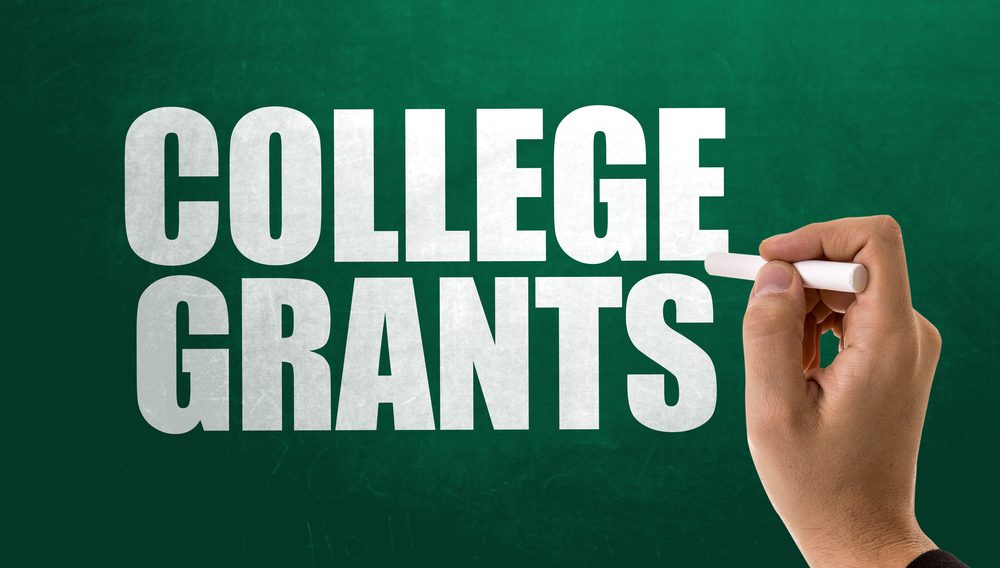Are you planning on going to college? If so, you have probably heard that the cost of college can be prohibitively expensive. The cost of higher education is continuing to rise, and when you are finishing high school, you might not have the money to pay for college out of pocket.
Even though it is true that parents often help their kids pay for college, everyone is in a slightly different financial situation. If your parents are unable to pay for your college, you might be thinking about taking out a student loan. While that is one option, you should also pursue the opportunity of an educational grant.
What is an educational grant, and how can it help you pay for college? Learn more below, and make sure you pursue every opportunity available to you.
What Is an Educational Grant?
An educational grant is similar to a student loan in that you will receive money that can help you pay for college. The biggest difference between a student loan and an educational grant is that you do not have to pay an educational grant back. Therefore, you should view an educational grant as a gift that can help you cover the cost of your college education.
Of course, you also need to think about how you can successfully apply for an educational grant. There are a few options available.
Who Gets an Educational Grant?
In general, there are two separate categories of educational grants. The first category is need-based. That means that if you require financial aid, you may be able to apply for a grant program. Then, whether you should receive that grant will depend on your need status. There might be a strict financial limit under which you have to fall if you want to successfully apply for this type of educational grant.
Then, the second category of educational grants is merit-based. Instead of considering your financial status, this type of educational grant will consider the merits of your application. It might depend on your high school academic performance, your athletic performance, extracurricular activities, and what you plan to do once you finish college. Then, the grant program will award a grant to the individuals who best meet the criteria of the program.
There are also some educational grant programs that might blend the need-based and merit-based aspects of the program above, considering both your financial status and the merits of your application.
How Do You Apply for an Educational Grant?

Clearly, if you are interested in going to college, you need to explore how an educational grant could help you save money on the cost of your education. So, what do you need to do if you are interested in applying for an educational grant? There are a few important steps to keep in mind.
1. Start With Your College or University
First, you need to start with your specific college or university. If you already know where you are going to school, you should reach out to an administrator at your college or university. Or, if you are still in the process of applying to college, you may want to ask about their grant opportunities as a part of your application process.
You should consider applying for both government grants and private grants. A government grant is going to come from the state or federal government, while a private grant is going to come from a corporation in the private sector. Your college or university should have a list of grants that you can apply for.
2. Fill Out the Free Application For Federal Student Aid (FAFSA)
Because you will be applying for government grants, always fill out the Free Application For Federal Student Aid (FAFSA). Even if you feel like there is no chance you will qualify for government aid, it is still important for you to fill out the FAFSA. That way, you do not miss out on any opportunities that could be available to you. Remember that even if you get a grant from the government, you will need to fill this document out every year.
If you decide to apply for private grants as well, they will probably have a separate application form that you need to fill out. Make sure you are honest on the application form, as private grants usually have strict criteria that you need to meet.
3. Start With Federal Grant Programs
Now that you have filled out a few applications, take a closer look at the federal educational grant opportunities. These are grants that come from the federal government.
One of the most popular options if you are interested in applying for a federal grant is called a Pell Grant. This is a program that is available to undergraduate students who are below a certain expected family contribution and income limit.
4. Browse the Private Programs at Your College or University
After applying to all of the federal programs available, take a look at the private programs at your college or university as well. There is a chance that your college or university has a list of educational grants that their students have used in the past. Some of them might even be scholarships that have been donated to the university. You should apply for these programs as well, as you never know which ones might be willing to support you.
5. Do Not Overlook Your State’s Grants
A lot of college students forget to take a look at the educational grants offered by the state government. Even though the state government is much smaller than the federal government, there is a good chance that they will still have some educational grant opportunities available. Remember that state programs usually have very tight deadlines, so it is important for you to make sure you do not miss them. Like federal government educational grants, state government educational grants are going to have criteria you need to meet if you want to qualify for the program.
Get Your Career Started With Dream Job Inc.!
After you finish your education, you will want to get your career started. A lot of college students that are interested in starting their careers will take a look at job opportunities as soon as they start their education. We are Dream Job Inc, and we would be happy to help you find jobs you can work in your spare time. We can even help you find jobs that might help you launch a new career. What opportunities do you think are available to you? Fill out our form today, and get your new career started!







